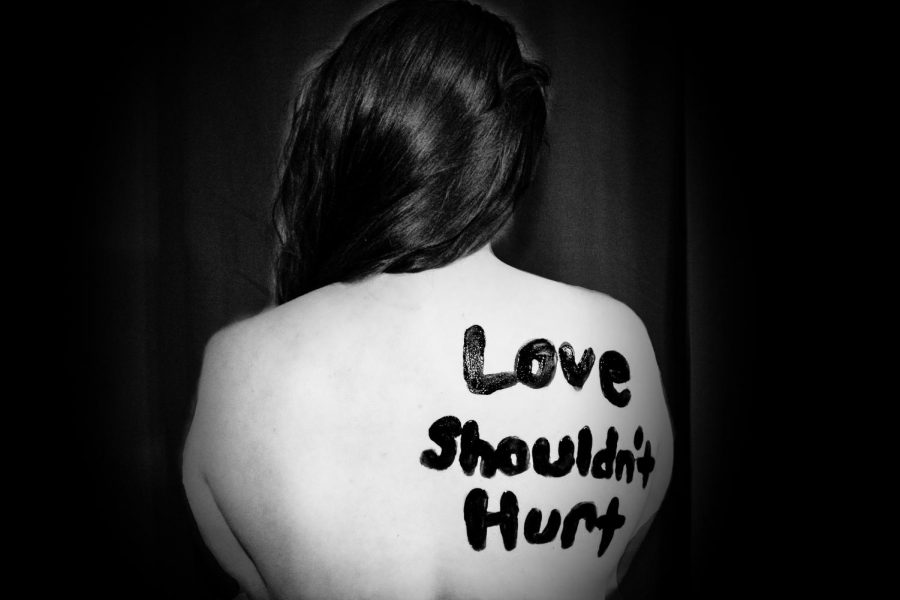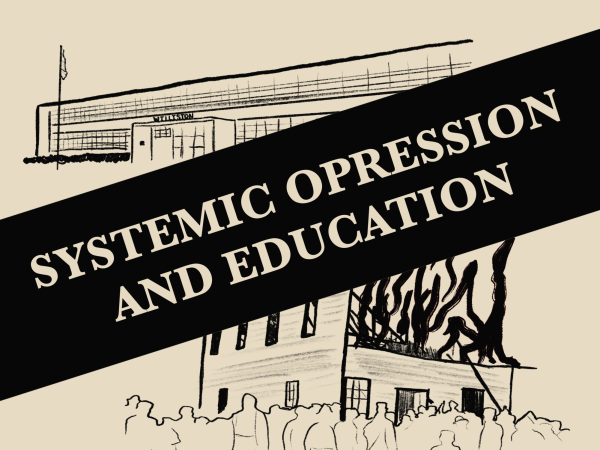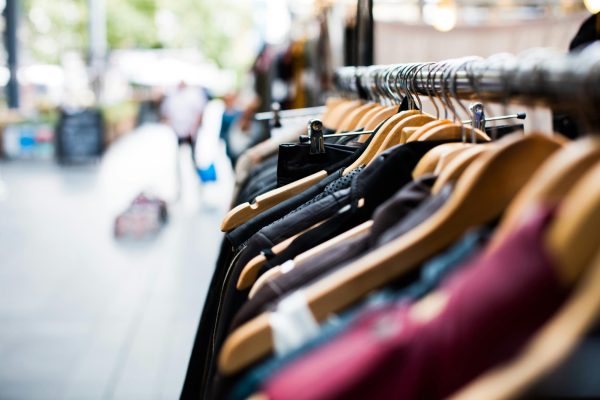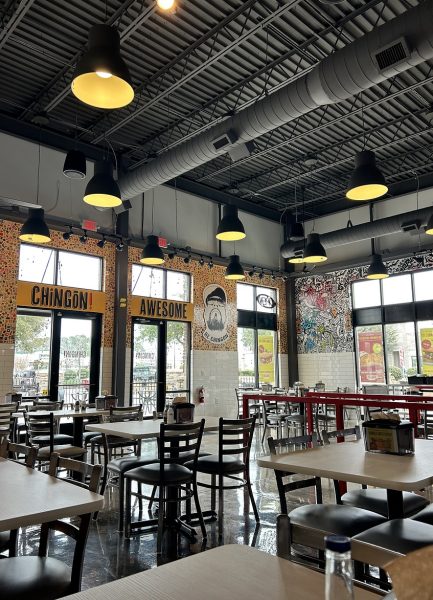A pandemic within a pandemic: domestic violence
Sydney Sims on Unsplash
He was a weak man. The sort who needed to crush a woman in order to feel powerful. -John Mark Green Photo by Sydney Sims on Unsplash
For many, home is a place of love, warmth and comfort where you have support and a break from the business of the real world. But for millions of others, home is anything but a sanctuary.
The US Department of Justice estimates that 10 million men and women are victims of physical violence by a partner every year. However, due to the coronavirus, these numbers are increasing significantly.
Numbers pulled from Domestic Violence Shelter and Services in Wilmington from October to December of 2020 show a large increase when compared to October to December of 2019.
“When we look at the number of calls we’re getting, we’re seeing an increase of 157%,” Mandy Houvouras, the Outreach Director for Domestic Violence Shelter and Services, stated. “Services overall are up 55%. But mostly we are seeing an increase in the nights of shelter we are providing, which is up 258%.”
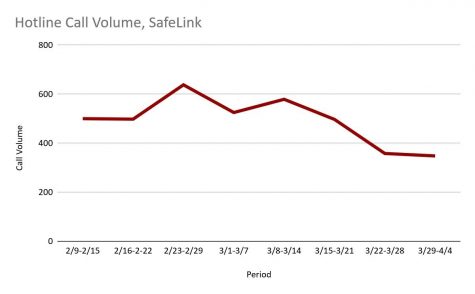
Cierra Clark, a victim advocate for CARE’s Violence Prevention and Response, states that domestic violence rates have increased since the stay at home orders were put in place in the spring of 2020. “Schools have closed. There is an economic crisis for survivors. Due to isolation and other safety concerns, there has been a risk of cases increasing in the Wilmington area,” she said.
Isolation is a big risk in domestic violence and the COVID-19 virus brought waves of stay-at-home orders that increased isolation both physically and socially. Although intended for public safety, these stay-at-home orders can leave victims of domestic violence trapped with their abusers.
Jen Adler, the Director of the UNCW CARE Office, speaks on it as well. “We also know that a lot of children, if they’re being abused, normally they’d be in front of a teacher, every single day, and that teacher would get to know them and get to know their mannerisms, and so when that student comes in and has a change in behavior or seems to be withdrawing or is wearing clothes that are covering up more of their body or is doing things indicating that there might be abuse going on at home—normally teachers or guidance counselors or school staff will pick up on that.”
In some places, calls to domestic violence hotlines dropped nearly 50% since the beginning of the COVID-19 virus outbreak. This isn’t because cases of domestic violence stopped, but rather, because victims are more afraid to call a hotline when sheltering in place with their abusers.
“There is still an ongoing need for services regarding domestic violence and the pandemic has reinforced some of those truths that it is difficult for survivors to receive those services,” Clarke said. “There’s economic barriers. There’s barriers to receive proper medical care. There’s barriers when it comes to childcare and child safety. Power and control is one of the strongest forces when it comes to domestic violence and isolation has caused a lot of survivors to not be able to access the support and services they need.”
The intensification of domestic violence during epidemics occurs for several reasons. These reasons can include: victims being isolated from supportive friends or family, loss of time away from abusers and lost access to childcare services, education, or food. Amongst these is increased financial stress on families due to layoffs and the loss of steady income.
In May 2020, the rate of unemployment for women was 17.8%. The unemployment rate in May 2020 for men was 14.5%. Unfortunately, these rates were higher for minority groups with the unemployment rate for Asian workers reaching about 20% for the same month.
With women and other minorities potentially being temporarily unemployed during the coronavirus, the financial and emotional stress in their households increases—making it more likely for abusive situations to escalate.
“Those jobs can often give people power and control,” said Adler. “It gives them financial independence. If they are able to get away from an abuser they’re more able to do that if they have that financial independence. They also have more people around them who might be those friends that can offer intervention.”
The CDC developed several practices that people can follow to foster healthy relationships and hinder abuse during the coronavirus pandemic. These practices include teaching safe and healthy relationship skills, supporting domestic violence survivors and disrupting potential harmful developmental pathways toward partner violence.
There are many ways that survivors can seek services during this timeframe. UNCW’s Police Department implemented the LiveSafe app, where students can get into contact with 911 or other emergency services and can report incidents through call or text.
Because survivors are isolated in their homes, many resources are implementing texting services so survivors can reach out without having to worry about calling. Other resources that can be reached through text are the UNCW’s CARE Center, the National Domestic Violence hotline and the Domestic Violence Shelter and Services agency in Wilmington. These resources also provide services like emotional support, court advocacy, crisis counseling and economic support among many other services.
“It takes time to leave a situation, it takes time to leave a household and the pandemic unfortunately has caused a lot of barriers in the household; economically, personally, financially,” Clarke states. “It makes everything so much more stressful, but there are services available if survivors need that support.”
People who know they are in an abusive relationship will stay with their partner for a number of reasons including:
- Their self-esteem is totally destroyed, and they are made to feel they will never be able to find another person to be with.
- The cycle of abuse, meaning the ‘Hearts and Flowers’ phase that follows physical and mental abuse, makes them believe their partner really is sorry and does love them.
- It’s dangerous to leave. Women may be more likely killed by their abuser after they leave them.
- They feel personally responsible for their partner, or their own behavior. They are made to feel like everything that goes wrong is their fault.
- They share a life. Marriages, children, homes, pets and finances are a big reason victims of abuse feel they can’t leave
Sometimes, people don’t know if they are really in an abusive relationship because they’re used to their partner calling them crazy or making them feel like all the problems are their own fault.
A few ways to know if you’re in an abusive relationship that you need to get out of include:
- Your partner has hit you, beat you, or strangled you in the past
- Your partner is possessive. They check up on you constantly wondering where you are; they get mad at you for hanging out with certain people if you don’t do what they say
- Your partner is jealous. A small amount of jealousy is normal and healthy, however, if they accuse you of being unfaithful or isolate you from family or friends, that means the jealousy has gone too far
- Your partner puts you down. They attack your intelligence, looks, mental health, or capabilities. They blame you for all of their violent outbursts and tell you nobody else will want you if you leave
- Your partner threatens you or your family
- Your partner physically and sexually abuses you. If they ever push, shove, or hit you, or make you have sex with them when you don’t want to–they are abusing you–even if it isn’t often
There’s lots of options for things that friends and families can do to help de-escalate an abusive situation without putting themselves at risk and without being too outside of their comfort zone. Some ways friends and families along with bystanders can de-escalate an abusive relationship is getting involved with raising awareness, knowing the signs to look for too, learning to be a good friend and to stick with the abused friend.
Often, in the case of abusive relationships, people ask the victims why they don’t just leave. Adler responded to this question, which is usually the first question posed to a victim, by saying “Why are we looking at the victim as the person responsible for ending the abuse?”
Domestic Violence Hotline: Call 1 (800) 799-7233
Domestic Violence Shelter and Services in Wilmington


